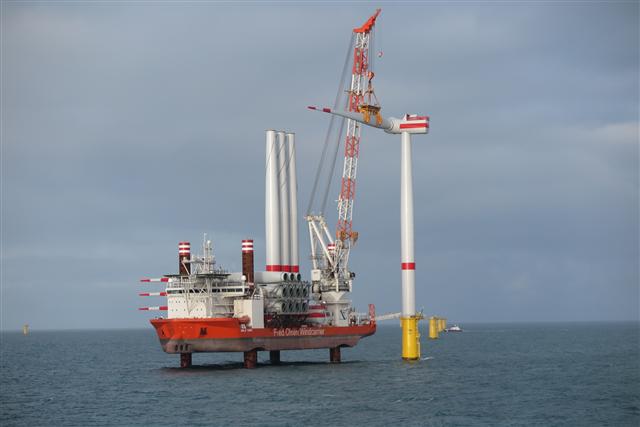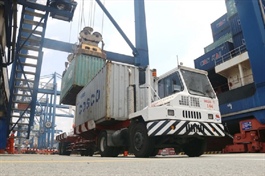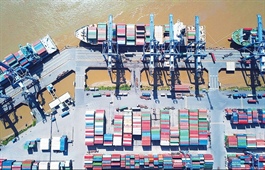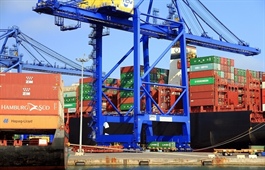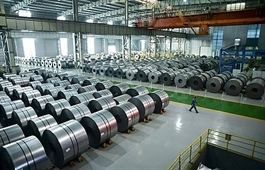Clear policies are needed to support Vietnam’s offshore wind industry
Clear policies are needed to support Vietnam’s offshore wind industry
Vietnam’s increasing demand in energy and high offshore wind energy potential has attracted attention from many investors to the country. Developers and industry associations are calling for stronger policies to provide long-term certainty for the industry.
Vietnam is rich in renewable energy resources and has a unique opportunity to move away from dependence on coal and foreign imported gas. By fostering renewable energy, Vietnam is in a position to shape an energy mix that reduces pollution of air, waterways, and agricultural land, and further contribute to national energy security.
Some progress has been made – over the past few years steps have been taken to realize small scale renewable projects. Through clearer incentive schemes, consistent regulation and foreign investment support, Vietnam can be more aggressive and realize renewable energy potentials on a larger and faster scale.
|
According to the World Bank, Vietnam holds 475 GW of fixed and floating offshore wind resource potential. The Danish Energy Agency, which published a roadmap for offshore wind development in Vietnam in 2020, identifies 160 GW of resource potential for offshore wind, excluding areas of national or military interest.
Vietnam currently does not have significant capacities of offshore wind farms in operation. As stated in a paper released by the Global Wind Energy Council (GWEC), ‘The Time to Act is Now’, although the country is on-track to install around 530 MW of nearshore wind projects by 2021, this figure is far below the assessed resource and is not capturing the potential of true offshore wind in Vietnam. Currently there are multiple GWs of offshore wind projects being developed, however, progress is slow due to a lack of legal framework.
Resolution No.55-NQ/TW published in February 2020 clearly outlines the need to develop supporting policies for offshore wind power development in Vietnam. Offshore wind can also support Vietnam’s Nationally Determined Contributions (NDCs) under the UNFCCC's Paris Agreement, under which Vietnam has committed to implement climate change policies. Vietnam’s target is to reduce 9 percent of greenhouse gas emissions by 2030 or up to 27 percent with international support. There is an urgent need to design a clear consenting framework for true offshore projects to ensure Vietnam can implement wind energy on a large scale that can meaningfully replace fossil fuels as an energy source.
Offshore wind generates enormous volumes of zero-carbon electricity at high productivity rates. As such, it presents the single most reliable renewable energy source to bridge power demand and supply challenges in the short term while progressing towards longer-term decarbonization targets.
In the context of Vietnam’s current balancing act between economic growth and the prevention of electricity shortages in the future, offshore wind can provide both scale and reliability as an energy source.
The 3.5 GW La Gan offshore wind farm project off the coast of Binh Thuan province targeting to install one of the first large-scale offshore wind farms and will shape the wind energy scene in this country. This flagship project is being developed by Copenhagen Infrastructure Partners (CIP), Asiapetro, and Novasia, and is managed by offshore wind experts Copenhagen Offshore Partners.
With the capacity of 3.5GW, the project is equivalent in capacity to a large coal or gas plant and is expected to power more than 7 million households. Over the lifetime La Gan will help the country avoid 130 million tons of CO2 emissions. The project has a total estimated investment value of $10.5 billion and will use the most advanced wind power technology.
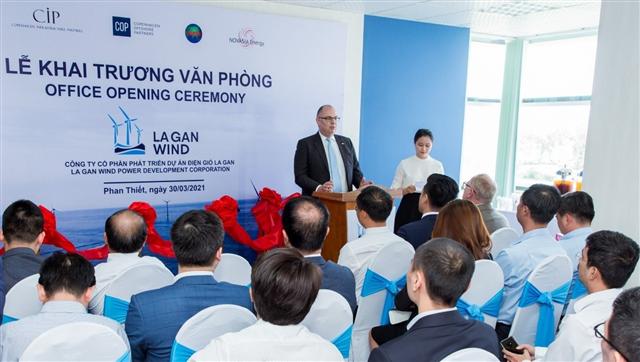
The Ambassador of Denmark, Mr. Kim Højlund Christensen, speaking at the opening ceremony of La Gan project office in Phan Thiet City, Binh Thuan Province, Vietnam
|
The La Gan project is committed to developing Vietnam’s offshore wind supply chain and facilitating knowledge transfer to Vietnamese companies. The project has signed 3 survey contracts worth millions of US dollars with local and international suppliers. Recently La Gan also signed six MoUs for foundations supply and harbour services with local and global contractors.
“By implementing the highest international standards, our goal is to secure Vietnam's long-term energy needs, promote the local supply chain and support the development of the country’s wind industry in a sustainable way,” said Ms. Maya Malik, project director of the La Gan project.
The vast majority of Vietnam’s population are increasingly concerned about pollution and climate change. In general, the public support for the development of renewable energy on a large scale is strong. With continued government support and clear regulations, renewables can also be sustainable and economical.


